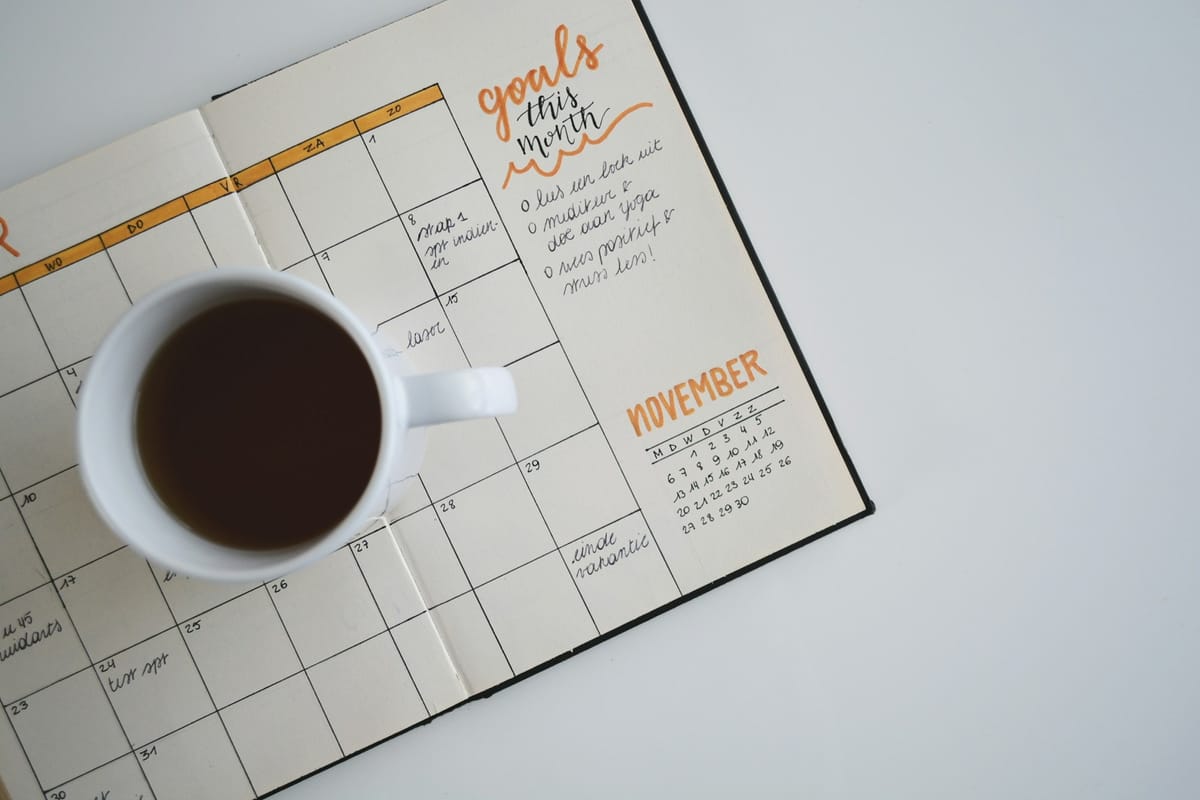The Importance of Routine

It’s been a little over a month now since I went from being happily employed to, well, not. I’m the kind of person that thrives when I have a schedule and know all the details to my day. So, when an unknown element, like sudden unemployment, is thrown into the mix, it’s made things quite scary.
So, one of the things that I’ve done in order to establish some semblance of normalcy was to create a routine for myself. My favourite author, Haruki Murakami, when speaking to the Paris Review, had this to say on routines:
“When I’m in writing mode for a novel, I get up at four a.m. and work for five to six hours. In the afternoon, I run for ten kilometres or swim for fifteen hundred meters (or do both), then I read a bit and listen to some music. I go to bed at nine p.m. I keep to this routine every day without variation. The repetition itself becomes the important thing; it’s a form of mesmerism. I mesmerize myself to reach a deeper state of mind.”
His example is quite extreme, and frankly terrifying, but it’s a fantastic representation of how routine can be an anchor in our lives. When there’s a routine, a lot of the day-to-day things that we tend to do on auto-pilot sort of just slot in. Because we don’t have to write a checklist item for every single action, like “wake up” or “brush teeth”, we can focus our attention elsewhere on the things that we actually do want to accomplish.
What Murakami has done is effectively find what works best for him, and slowly turn it into a process that requires zero thought. The certainty of his routine makes things feel more doable, as it removes much of the guesswork from his day, making him feel more in control and less stressed.
For me, creating a routine doesn’t necessarily mean following in Murakami’s example and waking up at the same time everyday and repeating the same process over and over again. Rather, it’s a way for me to re-focus my attention and be intentional with how I spend my time. While Murakami’s approach may certainly work for some people, for me, simply having a checklist of things that I want to accomplish on a given day and a dedicated space to work is what allows me to have that sense of certainty.
As simple and silly as it may sound, part of my routine is to put on actual clothes. My first instinct when becoming newly unemployed was to hang out in my sweatpants all day. What I noticed almost immediately was that when I was just hanging out in my pyjamas all day, I was more likely to feel lethargic and want to kick back and binge The Office for the umpteenth time. It made me sort of re-realize what you wear can significantly change your attitude towards how you work. While I’m not wearing my usual office attire, the simple act of getting dressed (jeans and a tee) sends a signal to my brain each day that I’m in work-mode, which helps me to kick-start my day and switch mental states from sleepy and lethargic to motivated.
One important shift I’ve made to my routine is finding a space in my house to work that isn’t in my bedroom.

While I may not have a room dedicated to specifically being a home office, I do have the luxury in having enough space to separate my work from where I like to relax; the bedroom and the couch. Whenever I try to work in my bedroom, there’s something about it that signals to my brain that it’s time to relax. In converting my dining room into a work area, I’m bypassing that and maintaining one aspect of my old routine which is to go into a place that’s specific to work. Before, that meant taking the train downtown, and now it’s getting up and walking downstairs.
If your home doesn’t allow for this, you can try converting another area, like the kitchen table, into a temporary workspace. What I like about this is that unlike a home office or setting up a semi-permanent work area elsewhere, you’re forced into packing up the day’s work and setting it aside for downtime, just like you would at the end of each day at the office.
And the last thing I’ve done to help me is to not only make each day consistent in approach, but different enough so that I don’t get bored. Currently, I’m still following a standard Monday to Friday 9-5 schedule that I’m so used to, with chunks of the day carved out for different things I want to work on. I also intentionally try to build in time throughout my day to address things that suddenly come up without any forewarning, which helps me to not feel overwhelmed and feel like I’m falling behind. Once things become a routine, there’s no more wriggling out of doing things you should and want to be doing, because they’re carved into your day.
What I’m finding, as a side effect to my new routine, is that I’ve, generally speaking, become more creative and productive with my time now than I was in the last few years. When presented with a choice, we’re likely to pick the one that’s easiest, quickest, and most enjoyable to do. However, with my new routine, I’m able to section off my day in such a way that work no longer feels like work. I’m finding that I now constantly have ideas for things to write about constantly percolating in the background, and as a result, I’m more motivated to actually write.
While you can find all sorts of motivating routines online, the majority of them likely won’t work you. You can certainly incorporate aspects of them into your own daily routine, but really, the best approach is to sit down and write out everything that you typically do each day over the course of a week, and see what you can possibly cut out entirely or reduce. With this information in hand, you can see what seems like a reasonable routine; something that you can do at a set time each day or week. What’s important to remember is that it has to work with your lifestyle, meaning if you like to stay up late, then maybe getting up at 4 am to run 10 kilometers like Murakami might not work out as part of your routine might.
Just remember, we are all still adjusting to what our new normal looks like, and this is different for everyone. Your new routine will take some time getting used to, but after a while, it’ll start to feel like second nature, and if you realize that something isn’t working out quite as you’d like, change it up! You’d be surprised at just how refreshing and stimulating a single, small change to your daily routine can be.




